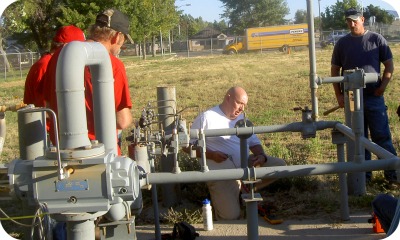Operator Qualification Program Provision 1: identify covered tasks
In my earlier post, “Guidelines for developing an Operator Qualification Plan,” I identified eight provisions the PHMSA mandates to be included in any Operation Qualification Program. Within this post, I discuss the first step, which is to identify the “covered tasks” performed by the employee or contractor.
Covered tasks are all activities performed on a pipeline facility. A pipeline facility is considered all belowground and aboveground piping, excluding the pipe inside a customer’s building. However, if a customer is buying gas and the meter is inside the building, then it includes the pipeline within the building up to the meter outlet.
Any operation or maintenance undertaking is considered a covered task. Additionally, anything that influences the operation and integrity of the pipeline would be on the OQ task list.
The PHMSA expects the operator to qualify their employees and contractors who perform any covered tasks. While not all may apply to your system, and some may be missing, the PHMSA considers the following OQ tasks:1
- Investigating leaks/odor complaints

Linc Energy Systems OQ Training offers a sufficient balance between hands-on and classroom instruction.
- Locating lines and marking lines
- Controlling and monitoring pipeline flow and pressure
- Operating an odorizer
- Monitoring natural gas odorization levels (“sniff test”)
- Repairing gas leaks
- Inspecting and testing pressure regulator station and overpressure protection
- Tapping pipeline under pressure
- Conducting a leakage survey
- Joining pipe for maintenance
- Inspecting critical valves
- pipeline maintenance such as welding
- Excavating and backfilling
- Repairing coating on existing steel pipelines
- Measuring pipe-to-soil potential
- Coating piping aboveground
- Inspecting for atmospheric corrosion
- Inspecting the condition of the exposed pipe or pipe coating
- Installing/replacing a rectifier
- Installing/replacing an anode or test station
- Inspecting a rectifier
- Visually inspecting for internal corrosion
- Purging
- Patrolling
- Isolating sections of pipe or stopping off or otherwise controlling gas flow or product to a work site
These are some covered tasks, though it is suggested that other OQ lists can be purchased from trade associations. In my next posting, I will expand upon step #2: the evaluation of individuals performing the covered tasks to prove they are qualified.
1 OQ Guide for Small Distribution Systems


